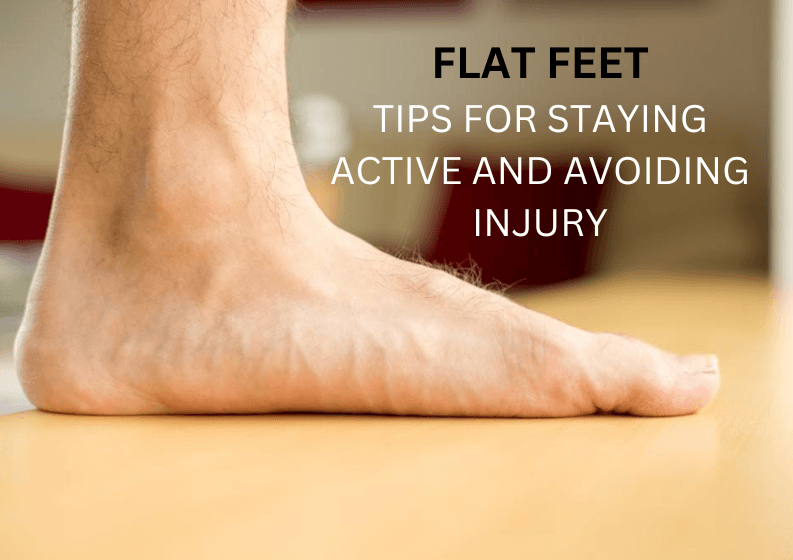Flat foot, medically known as pes planus, is a condition where the arch of the foot are significantly flattened, causing the entire sole of the foot to make contact with the ground. Unlike the typical foot arch, which provides shock absorption and support, individuals with this condition have an arch that is lower or non-existent. This condition can affect one or both feet and is often a source of concern for those who want to stay active and maintain a healthy lifestyle.
With different levels of severity, it is relatively common. It can be a congenital condition or develop over time as a result of many circumstances in persons of all ages, from infants to adults.
In this blog, we share helpful tips on how people with flat foot can embrace an active lifestyle while lowering their risk of harm.
The lack of arch support can cause overpronation, where the foot rolls excessively inward during walking or running, potentially leading to issues such as Shin splints, Plantar fasciitis or Achilles tendonitis.
While it is not usually painful, they can make it difficult to participate in certain activities and increase the risk of injury.
Here are some tips for staying active with flat foot:
1. Choose supportive shoes – Shoes with good arch support can help to reduce pain and discomfort, and prevent injury. Look for shoes that are made specifically for flat feet.
2. Do strengthening exercises – There are a number of exercises that can help to strengthen the muscles of the feet and ankles. These exercises can help to improve the stability of the feet and reduce the risk of injury. Some examples of strengthening exercises include:
a) Arch lifts: Stand with your feet shoulder-width apart and raise your heels off the ground, so that you are standing on your toes. Hold for a few seconds, then lower your heels back to the ground.
b) Towel curls: Sit on the floor with your feet flat on the ground. Place a towel under your toes and curl your toes around the towel, bringing it towards your shins.
c) Calf raises: Stand with your back against a wall and your feet shoulder-width apart. Raise your heels off the ground, so that you are standing on your toes. Hold for a few seconds, then lower your heels back to the ground.
3. Stretch regularly – Stretching can help to improve flexibility and range of motion in the feet and ankles. This can help to prevent pain and injury. Some examples of stretches are:
a) Calf stretch: Stand with your back against a wall and your feet shoulder-width apart. Lean forward against the wall, keeping your heels on the ground. Hold for a few seconds, then straighten up.
b) Toe stretch: Sit on the floor with your legs extended in front of you. Reach down and grasp your toes, pulling them towards you. Hold for a few seconds, then release.
4. Warm up before exercising – Warming up helps to prepare the body for activity and reduce the risk of injury. A good warm-up should include some light cardio and dynamic stretching.
5. Cool down after exercising – Cooling down helps to reduce inflammation and muscle soreness. A good cool-down should include some static stretching.
6. Avoid high-impact activities – High-impact activities, such as running and jumping, can put more stress on the feet and ankles of people. It is best to avoid these activities or to do them in moderation.
If you have flat foot and are experiencing pain, it is important to see a doctor or physical therapist to get a personalized treatment plan. They can help you choose the right shoes, insoles, exercises and stretches to help you stay active and pain-free.
Dr Vikram Rajguru, an regenerative Orthopedic doctor in Pune helps in flat foot treatment of the people successfully. His new therapy includes regenerative treatments that has helped many patient overcome their chronic pain issues.
With specialized techniques and targeted treatments , the Prolotherapy clinic aims to strengthen weakened ligaments and tendons, reduce pain and improve overall function. These treatments are innovative, non-surgical and without any side effects.
To learn more about Regenerative treatments provided by the Prolotherapy clinic, Please contact on 7507501241, 9049046867 or visit website www.theprolotherapyclinic.com

